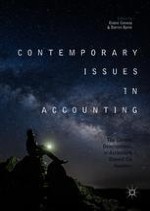2018 | OriginalPaper | Buchkapitel
2. Sustainability, the Triple Bottom Line and Corporate Social Responsibility
verfasst von : Elaine Conway
Erschienen in: Contemporary Issues in Accounting
Aktivieren Sie unsere intelligente Suche, um passende Fachinhalte oder Patente zu finden.
Wählen Sie Textabschnitte aus um mit Künstlicher Intelligenz passenden Patente zu finden. powered by
Markieren Sie Textabschnitte, um KI-gestützt weitere passende Inhalte zu finden. powered by
